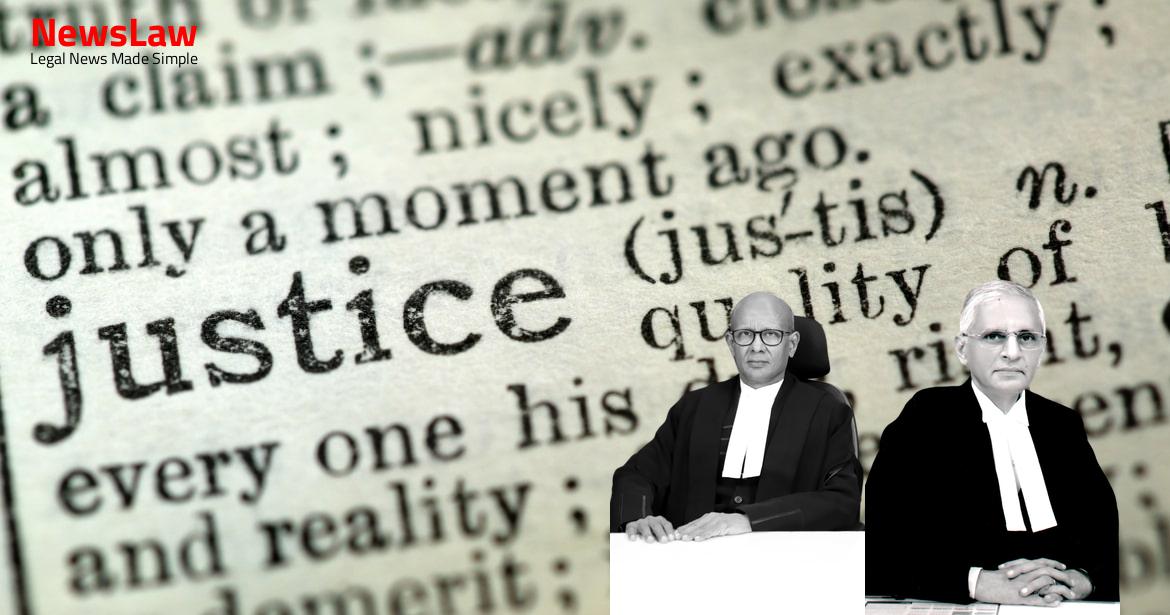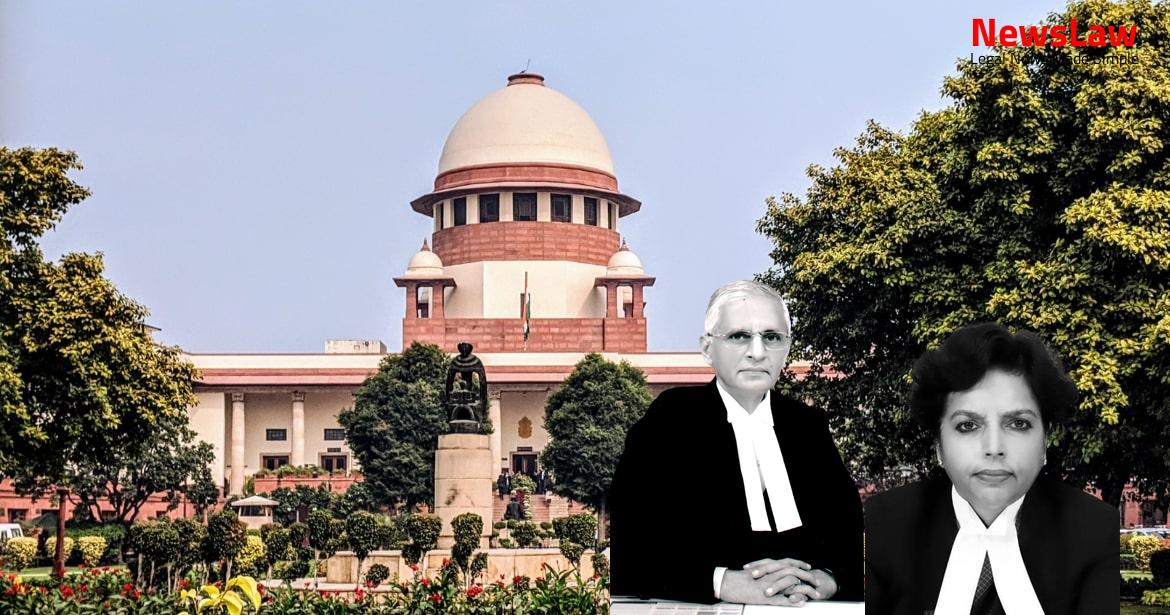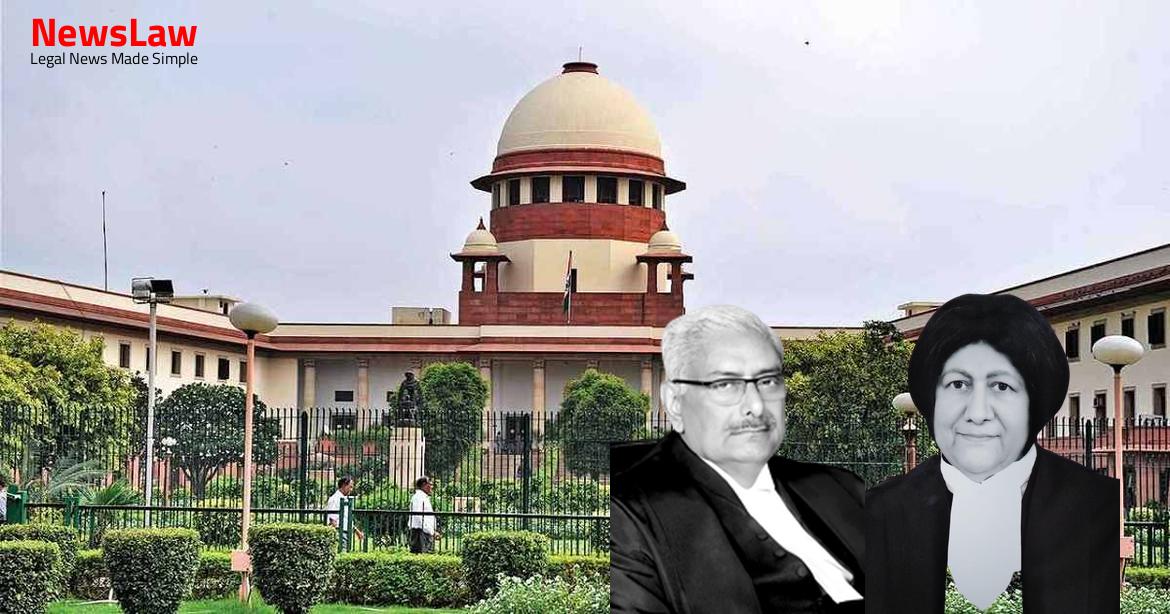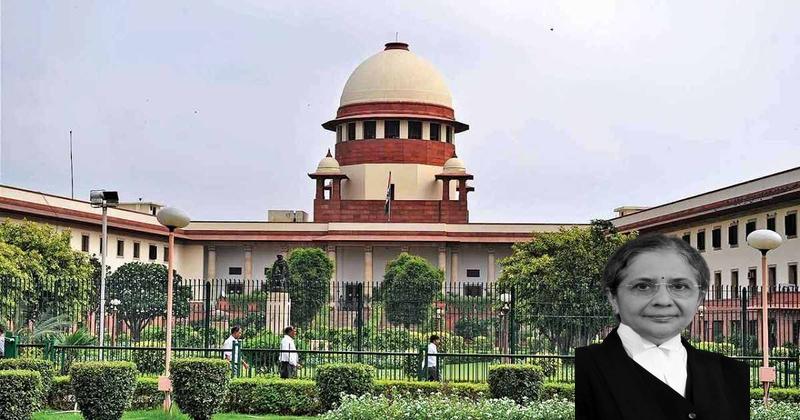In a significant legal battle between the Mrugendra Indravadan Mehta and Ahmedabad Municipal Corporation, the Supreme Court of India has delivered a crucial judgement addressing issues related to land allocation and compensation discrepancies. The case revolves around the alleged deprivation of property enjoyment by the Plaintiffs since 1963 and the Corporation’s failure to fulfill its obligations. Stay tuned to uncover the details of this landmark ruling.
Facts
- Plaintiffs filed a suit seeking compensation or land allotment which was reduced by 974 sq. mts. compared to the initial allotment.
- Plaintiffs claimed they were offered meagre compensation of ₹ 25/- per sq. mt. for the deducted area, which was undervalued.
- The Corporation failed to give vacant possession of the final plot to plaintiffs due to litigation, delaying possession until 31.01.1996.
- Plaintiffs alleged deprivation of possession and enjoyment of promised land since 1963 due to Corporation’s inability to allocate.
- The Corporation denied any liability beyond the compensation already paid and possession of Final Plot No 187.
- Legal battles ensued involving Pulkit Trust regarding land use, with further schemes and variations causing disputes.
- The Trial Court found in favor of plaintiffs on issues related to land allotment, compensation, and Corporation’s failure to discharge duties.
- The Trial Court noted the delay of 33 years in handing over Final Plot No 187 to the plaintiffs after the initial allotment.
- The Trial Court agreed with the plaintiffs that the compensation rate of ₹ 25/- per sq. mt. was meagre and inadequate.
- The Trial Court affirmed that the plaintiffs suffered a monetary loss due to the delay in enjoying the property since 1963.
- Issue Nos. 8 and 9 were answered in the affirmative by the Trial Court.
- The High Court held that the Trial Court erred in directing the Corporation to allot 974 sq. mts. of land in another scheme due to the compensation already paid and accepted by the plaintiffs.
- High Court referred to Section 71 of the Act of 1976, allowing variation of Town Planning Schemes, and ruled that any rights to the remaining 974 sq. mts. no longer existed after variation.
- The Trial Court did not accept the plaintiffs’ claim of market price being ₹ 150/- per sq. mt. in 1963 due to lack of evidence.
- The High Court observed that Section 105 of the Act was not meant to protect injustice caused by the Corporation’s actions.
- High Court noted that the compensation paid to the plaintiffs for the shortfall of 974 sq. mts. was inadequate, resulting in the direction to return the amount paid and the rejection of further compensation claims.
- The High Court deemed it impermissible for the Trial Court to pass orders varying the scheme further when plaintiffs had accepted the compensation without protest.
- The High Court allowed the Corporation’s appeal and dismissed the plaintiffs’ cross-objection, leading to the filing of these appeals.
- The plaintiffs supported the second varied scheme in previous proceedings, making it untenable for them to claim grievances regarding the allotted plot.
- The Trial Court decreed the suit by accepting the alternative prayer for land allotment but rejecting the main compensation demand.
- The correspondence reflected a reduction of 974 sq. mts. due to the change in allotment of plots to the plaintiffs.
Also Read: Karikho Kri vs Nuney Tayang Legal Battle
Issue
- Plaintiffs claimed ownership of specific land parcels in Paldi area previously owned by deceased father.
- Plaintiffs sought allocation of specific land areas by Ahmedabad Municipal Corporation due to Town Planning Scheme.
- Allegations of inadequate compensation for land difference in 1991 were made by plaintiffs.
- Plaintiffs claimed to have suffered monetary loss and deprivation of property enjoyment since 1963 due to delayed plot handovers.
- Discrepancy between prevailing market rates and compensation offered by defendants was raised by plaintiffs.
- Court ruled in favor of plaintiffs on issues related to ownership, land allocation, and compensation discrepancies.
- Court dismissed claims made by defendants regarding the suit being illegal, non-maintainable, and lacking necessary procedures.
- Defendants were found to have failed in legal obligations regarding possession of specific plots as alleged by plaintiffs.
Also Read: Balaji Chimnaji More vs Babaji Hari Shelar and Ganapati Dhondiba Tapkir
Arguments
- Reference to N. Nagendra Rao and Co. vs State of A.P. is not applicable in this case
- Principles in the referenced case would only apply if plaintiffs’ claim was supported by material evidence
- Plaintiffs’ claim for compensation lacks material evidence
Also Read: Judicial Oversight in Granting Pre-Arrest Bail to Police Officer
Analysis
- The plaintiffs accepted the compensation amount for the shortfall area without protest, closing their right to challenge further compensation.
- The plaintiffs did not produce any evidence to support their claim for compensation.
- The plaintiffs’ main prayer was for quantified compensation, but they did not avail the appellate remedy provided under Section 54.
- The plaintiffs’ attempt to equate the values of Final Plot No 463 and Final Plot No 187 was illogical without relevant evidence.
- The High Court was justified in allowing the Corporation’s appeal and non-suiting the plaintiffs.
- The judgment of the High Court does not warrant interference and the appeals were dismissed.
- The statutory provisions of the Act of 1976 do not guarantee a plot owner another plot of equal size after surrendering land in a Town Planning Scheme.
- The Act of 1976 provides for reconstitution of plots and compensations under certain sections.
- The judgment upheld the reconstitution and readjustment of plots as provided in the Act of 1976.
- The plaintiffs’ argument on points for determination was not substantial grounds to set aside the High Court judgment.
- Section 70 of the Act empowers the appropriate authority to apply for variation of the scheme in case of errors, irregularities, or informalities.
- Section 71 allows for the variation of a Town Planning Scheme through a subsequent scheme regardless of Section 70 provisions.
- The Town Planning Officer can transfer rights from original plots to final plots as per Section 52(1)(iii).
- Plans related to land allotment for public purposes should be open for public inspection at the appropriate authority’s office.
- Section 68 enables the authority to evict unauthorized occupants from the land after the preliminary scheme comes into force.
- Section 40 empowers the appropriate authority to make one or more Town Planning Schemes for a development area.
- Section 67 outlines the effects of a preliminary scheme including vesting of lands in the appropriate authority.
- Section 81 deals with the transfer of rights from original to final plots by the Town Planning Officer.
- Compensation calculation for public purpose lands and contributions by plot owners are addressed in various sections.
- Provisions for objections against draft schemes and appeals against decisions of the Town Planning Officer are outlined in the Act.
- The Act also provides for compensation to owners whose properties are affected by the Town Planning Scheme.
- Rules under the Act, like the Gujarat Town Planning and Urban Development Rules, 1979, detail procedures for various aspects of the Act’s implementation.
- The question of substantial compliance with Order 41 Rule 31 CPC depends on the nature of the judgment in each case.
- Upon the final scheme taking effect, lands needed for the scheme automatically vest in the local authority.
- In case of reversing a finding of fact, the first appellate Court must engage with the Trial Court’s reasoning and provide its own reasons.
- Even if points for determination are not framed, the first appellate Court’s judgment is valid if it records reasons based on evidence.
- The method of adjustment of contribution against compensation in the Bombay Town Planning Act states the compensation due to the owner.
- Owners of reconstituted or final plots in the scheme become owners of those plots subject to the Town Planning Officer’s rights.
Case Title: MRUGENDRA INDRAVADAN MEHTA Vs. AHMEDABAD MUNICIPAL CORPORATION (2024 INSC 401)
Case Number: C.A. No.-016956-016957 – 2017



